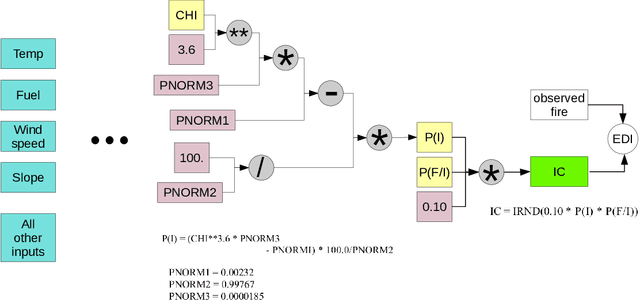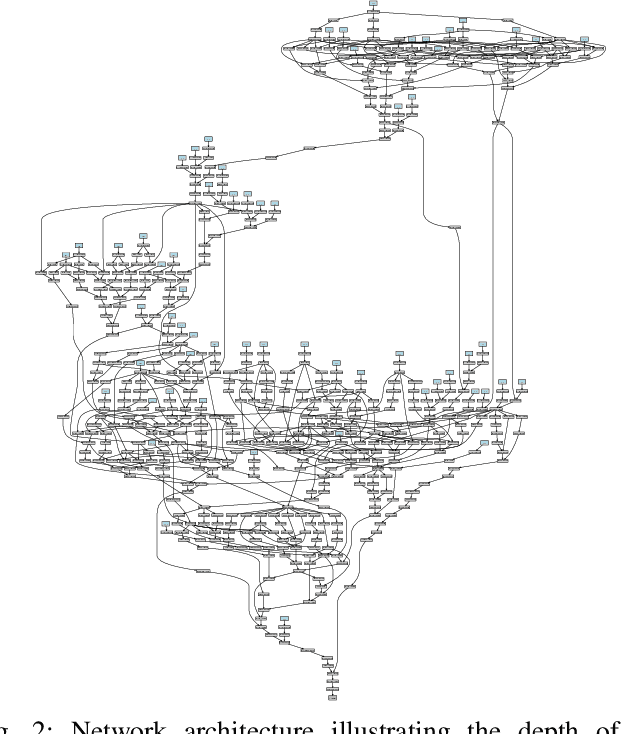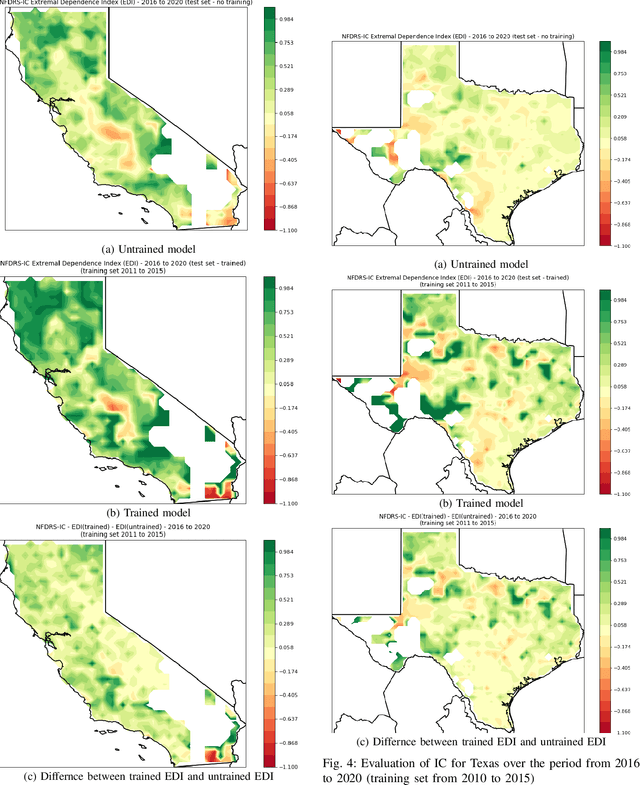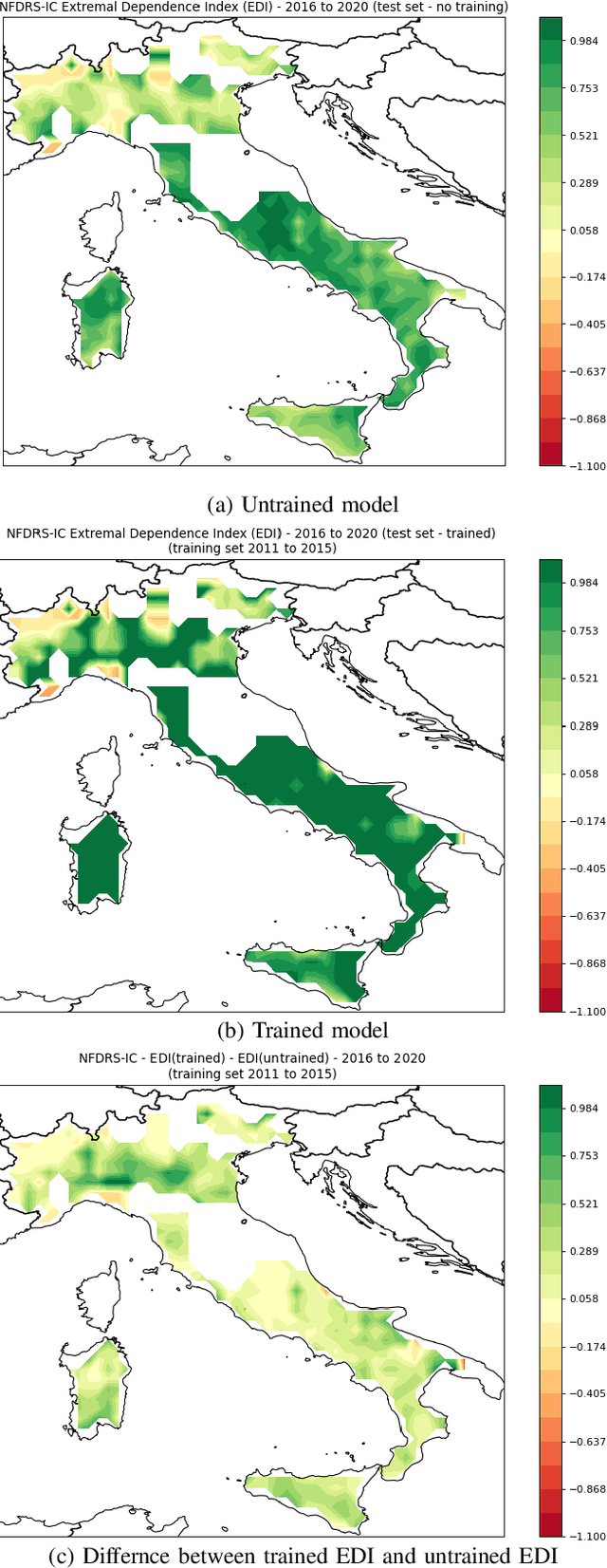Wildfire risk forecast: An optimizable fire danger index
Paper and Code
Mar 28, 2022



Wildfire events have caused severe losses in many places around the world and are expected to increase with climate change. Throughout the years many technologies have been developed to identify fire events early on and to simulate fire behavior once they have started. Another particularly helpful technology is fire risk indices, which use weather forcing to make advanced predictions of the risk of fire. Predictions of fire risk indices can be used, for instance, to allocate resources in places with high risk. These indices have been developed over the years as empirical models with parameters that were estimated in lab experiments and field tests. These parameters, however, may not fit well all places where these models are used. In this paper we propose a novel implementation of one index (NFDRS IC) as a differentiable function in which one can optimize its internal parameters via gradient descent. We leverage existing machine learning frameworks (PyTorch) to construct our model. This approach has two benefits: (1) the NFDRS IC parameters can be improved for each region using actual observed fire events, and (2) the internal variables remain intact for interpretations by specialists instead of meaningless hidden layers as in traditional neural networks. In this paper we evaluate our strategy with actual fire events for locations in the USA and Europe.
 Add to Chrome
Add to Chrome Add to Firefox
Add to Firefox Add to Edge
Add to Edge